'"If you wake at midnight, and hear a horse's feet
Don't go drawing back the blinds and looking in the street
Them that ask no questions, isn't told a lie
Watch the wall my darling, while the gentlemen go by."
Rudyard Kipling, A Smuggler's Song.
Hawkhurst, in Kent, is a quiet village, but in the eighteenth century it was the base for a gang who could summon five hundred armed and mounted men within an hour to pick up and escort the goods when the smuggling boats came ashore,invariably at night. In an age before modern telecommunications they managed to run a smuggling operation across Southern England from Kent in the South East to Poole in Dorset in the South West, partly through their own men, but also co-operation with local smuggling gangs.
They were confident of their power and immunity, enough to ride ceremonially through the coastal town of Rye to drink in the Mermaid Inn, where they would sit with weapons visibly displayed on the tables. The populace was favourable to the smugglers, many of whom were prosperous local farmers and business men, and this meant that the local authorities were often impeded in handling them, a weakness worsened by the collusion of local dignitaries who often received
"brandy for the parson, baccy for the clerk, laces for a lady......" {Kipling.]
Ordinary people hoped for a spin off from the racket
"..... there's a chance, you'll be give a pretty doll,
All the way from France
With a cap of Valenciennes, and a velvet hood
A present from the gentlemen along a being good." [Kipling]
But murder was never far away from the operation, and when a young man in Rye displayed an unusual interest in the gang, he was suspected of being a government spy, taken away and never seen again. The threat of violence worsened when Jeremiah Curtis, a thoroughly violent enforcer, was recruited from one of the gangs of armed robbers who lurked in the district. Having Curtis on your side made you more feared, but less popular.
There came other murders. This time the victim was Thomas Carswell, a customs officer who was escorting several hundred weight of tea confiscated from the gang. He was accompanied by a small squad of soldiers, but the gang, who had fuelled their courage on brandy, mustered thirty men to ambush the escort, killed Carswell and disarmed the soldiers. There came another murder when a farm labourer, Richard Hawkins, was tortured to death after allegedly stealing some of the gang's tea and the body dumped in a pond.
In 1746 the gang were confident enough to ride through the coastal village of Lydd on their way to pick up contraband with the locals not daring to challenge them, intimidating locals when they stayed overnight at an inn. The gang were beginning to think themselves invincible.




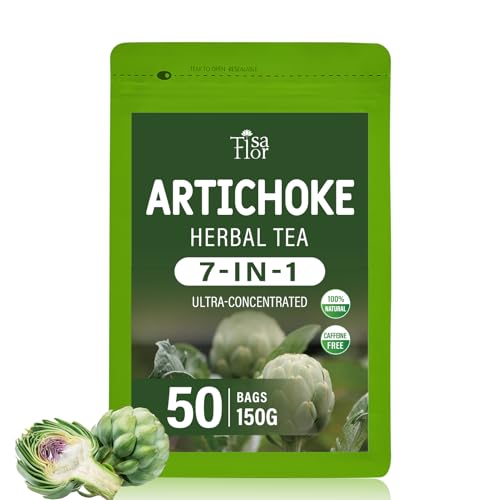



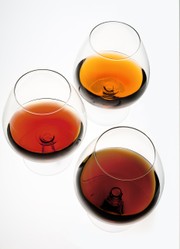

 Darkness over the Earth the skies darkened when Jesus was crucified18 days ago
Darkness over the Earth the skies darkened when Jesus was crucified18 days ago
 TheThousand Year Gardenon 11/26/2025
TheThousand Year Gardenon 11/26/2025
 Women of the Gospelson 10/11/2025
Women of the Gospelson 10/11/2025
 Religious Gardenson 08/25/2025
Religious Gardenson 08/25/2025

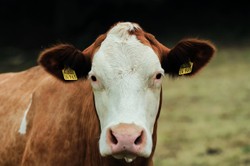
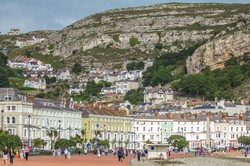
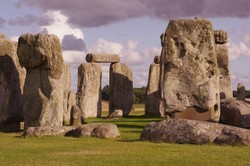
Comments
Whisky was not made in continental Europe, but in Ireland and Scotland, where it was subject to customs duties,p. However, the Irish name Scotsbignored the rules. The Irish brewed poteen, and the market thrived.
Thank you for your comment below in answer to my previous observation and question.
Brandy, coffee and tea as popular, profitable smuggled goods intrigue me.
Why was whisky not on that list?
Eye witnesses and being caught with stolen or smuggled goods.
Thank you for your comment below in answer to my previous observation and question.
The wizzley-narrated happenings occurred before fingerprinting.
So what served to convict smugglers of smuggl-er-ing and smugglees of smuggl-ee-ing?
Would it have been eyewitnesses or the appearance or packaging or scent or taste or texture of the brandy, coffee and tea or both or something else?
They were concerned about being caught.
The computer crashed before I commenced another component to my comment below.
Customers commercing or consuming smuggled brandy, coffee and tea perhaps concerned themselves about something cautioning authority figures of their non-legal origins.
Or did the clientele of smuggled commerce only concern themselves with not being caught at the place and the time of smuggled brandy, coffee, tea changing from smuggler hands?
Thank you for your comment below in answer to my previous observation and question.
Brandy, coffee and tea necessitate some kind of containerization or packaging.
Might buyers of smuggled goods immediately have changed containers and packaging perhaps lacking import-duty-paid stamps (if such a thing prevailed)? Might they have burned the guilty containers and packaging?
(Unitedstatesians nowadays perhaps would litter such containers and packaging in some business's or someone's trash bins or yards or in some water body's waters!)
Derdriu, the prices that the smugglers got were not recorded, but they must have been substantially lower than legitimate goods to make it worth taking the risk of buying them.
Curtis' fate is unknown. He must have had contacts in France, which was where the smuggled brandy came from.
frankbeswick, Thank you for the practical informations and product lines.
Do we know if the prices that smugglers got on brandy, coffee and tea were the equivalent of the market price minus import duties or the equivalent of a substantially lower price?
It's interesting that Jeremiah Curtis went to France. Perhaps he spent the rest of his days in the brandy business in France or on a coffee or tea plantation somewhere on a French colony (maybe not too long in Guiana, maybe longer if elsewhere, such as Asia or the Pacific).
It is reported that the uncharming gentlemen of the Hawkhurst Gang once forced an innocent farmer off the road to enable their passage. So much for the romantic smugglers.